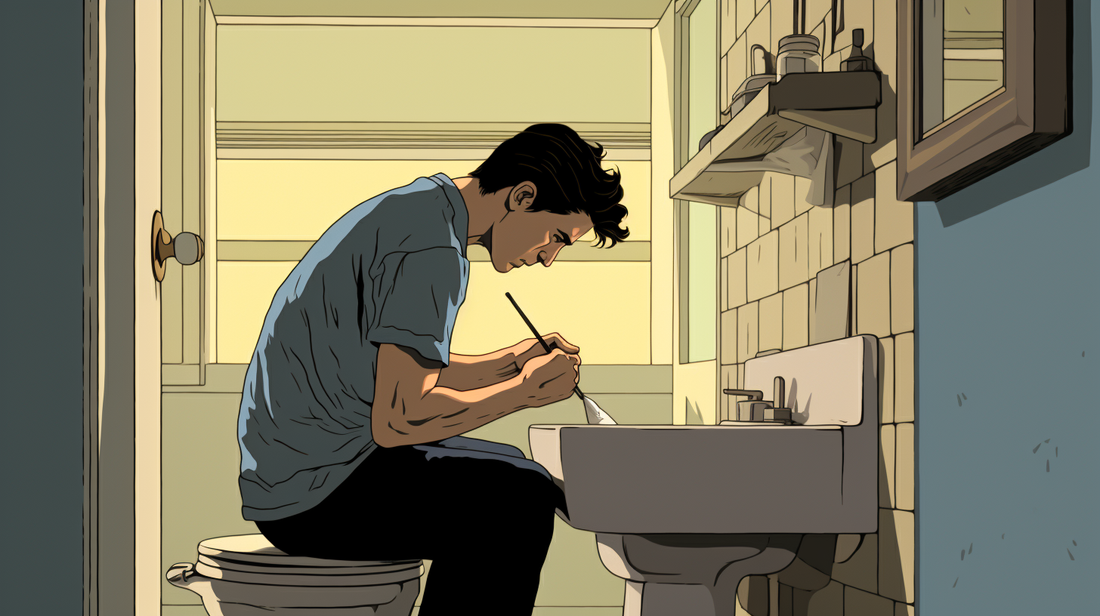
Plumbing 101: Tips And Tricks For Your Pipes
Table 1: Article Outline
- Introduction
- Understanding Your Home's Plumbing System
- Essential Plumbing Tools Every Homeowner Should Have
- Basic Plumbing Tips and Tricks
-
Common Plumbing Problems and How to Fix Them
- How to Fix a Leaky Faucet
- Unclogging Drains Efficiently
- Installing New Plumbing Fixtures
- Plumbing Maintenance Guide
- Plumbing Safety Measures
- When to Call a Professional Plumber
- Preventive Measures for Plumbing Issues
- Plumbing Troubleshooting Techniques
- Conclusion
- FAQs
Introduction
Plumbing is an integral part of any home, and understanding the basics can save you both time and money. This article will provide you with a beginner's guide to plumbing, offering essential tips and tricks to help you maintain and repair your pipes.
Understanding Your Home's Plumbing System
Before you can tackle any plumbing task, it's crucial to understand how your home's plumbing system works. This includes knowing the difference between the water supply system, which brings fresh water into your home, and the drainage system, which takes wastewater away. Familiarizing yourself with these systems can help you identify and fix issues more effectively.
Essential Plumbing Tools Every Homeowner Should Have
Having the right tools is the first step in any DIY plumbing project. Some of the basic tools you'll need include a plunger, pipe wrench, plumber's tape, and a hand auger. Investing in good quality tools can make your plumbing tasks easier and more efficient.
Basic Plumbing Tips and Tricks
There are several basic tips and tricks that can make your plumbing tasks easier. For example, always turn off the water supply before starting any plumbing work to avoid flooding. Also, remember to never force a pipe or fixture to turn, as this can cause damage.
Common Plumbing Problems and How to Fix Them
How to Fix a Leaky Faucet
A leaky faucet is a common plumbing issue that can often be fixed without the need for a professional plumber. The first step is to identify the type of faucet you have (ball, cartridge, or ceramic disk) as this will determine the repair process. Once you've identified the type, you can then purchase a repair kit from your local home improvement store.
Unclogging Drains Efficiently
Clogged drains can be a nuisance, but they can often be fixed with a plunger or a plumber's snake. If these tools don't work, you might need to try a drain cleaning solution. Remember to always follow the manufacturer's instructions when using these products.
Installing New Plumbing Fixtures
Installing new plumbing fixtures can give your home a fresh look. Whether you're installing a new faucet or showerhead, always remember to turn off the water supply before starting the installation process. Also, be sure to follow the manufacturer's instructions to ensure a proper installation.
Plumbing Maintenance Guide
Regular maintenance is key to preventing plumbing issues. This includes regularly checking for leaks, draining your water heater annually, and avoiding putting grease or oil down your drains.
Plumbing Safety Measures
Safety should always be your top priority when doing any DIY plumbing work. Always wear protective gear, such as gloves and safety glasses, and make sure your tools are in good working condition.
When to Call a Professional Plumber
While many plumbing tasks can be done on your own, some require the expertise of a professional plumber. If a job seems too complicated or if you're dealing with a major leak or clog, it's best to call a professional.
Preventive Measures for Plumbing Issues
Prevention is always better than cure, especially when it comes to plumbing. Regularly inspect your pipes for any signs of damage, and fix small issues before they turn into big problems.
Plumbing Troubleshooting Techniques
If you're facing a plumbing issue, the first step is to identify the source of the problem. Once you've identified the source, you can then determine the best course of action. Remember, it's always better to call a professional if you're unsure.
Conclusion
Learning the basics of plumbing can be a valuable skill for any homeowner. With these tips and tricks, you'll be well on your way to maintaining and repairing your pipes like a pro.
FAQs
- What are some essential plumbing tools for beginners? Some essential tools include a plunger, pipe wrench, plumber's tape, and a hand auger.
- How can I unclog a drain? For minor clogs, a plunger can often do the trick. If that doesn't work, you might need to use a plumber's snake or a drain cleaning solution.
- How can I fix a leaky faucet? The first step is to identify the type of faucet you have (ball, cartridge, or ceramic disk) as this will determine the repair process. Once you've identified the type, you can then purchase a repair kit from your local home improvement store.
- What are some preventive measures for plumbing issues? Regularly inspect your pipes for any signs of damage, and fix small issues before they turn into big problems.
- When should I call a professional plumber? If a job seems too complicated or if you're dealing with a major leak or clog, it's best to call a professional.
Plumbing 101: Tips and Tricks for Your Pipes by Tonys Drain & Sewer Cleaning
